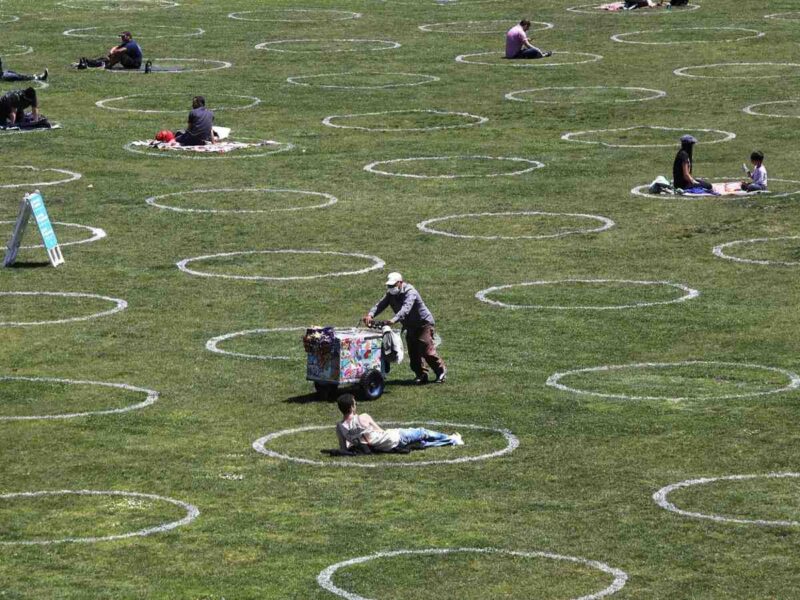Freedom versus Enforced-Freedom
Every term in democracy gets turned into the opposite of its original meaning because democracy is based in inversion. That is, in a desperate attempt to feel smart and in control, people opt to avoid talking about the big important issues and make it taboo to mention them, which means any term must first mean not talking about those things.
In this way, when we talk about peace, we leave out the stubborn fact that you can only have peace when your enemies are defeated, or your enemies will invade your peaceful ass while you are singing hippie songs. When we talk about health, we refer to medicines, not healthy living. Every area of language is infected with this process.
This means that even terms like freedom have become meaningless:
[W]ithout freedom of thought, how can we have freedom of speech or expression? What is freedom of assembly without the right to believe and worship as one chooses with that group?
Like democracy, it has become inverted by refusing to mention the things it fears. You can have democracy… as long as you vote for more democracy. You can have freedom to do the things that socially and more importantly politically acceptable, but not to mention any problems with the social and political status quo.
Freedom of thought means the ability to make up your mind about what is real and good. The former determines what is possible; the latter involves selecting the best possible option from the former. Democracy inverts this process by deciding what it wants is good, and then selects what is “real” from among that list.
The problem with freedom is that people abuse it. This is why originally we had kings and aristocrats to keep a lid on the unruly masses who, if given freedom, promptly turn to the type of licentious and opportunistic “end days of Rome” behavior we see out there on the streets daily.
The root of freedom can be found in the idea of formulating a philosophy or religion for understanding the world as more than the sum of its parts. From this religious freedom, which includes atheism, we have the ability to determine our own values and then live by them.
However, the bureaucrats came up with another idea, namely enforced freedom, which is the ability to be free within the confines of what the bureaucrats think is good. You are free to think, say, and do anything that is not on the list of stuff that is taboo or banned.
For this reason, the education meritocracy bureaucrats (EMBs) want to limit your perspective so that you would never even think of un-democratic thoughts or actions:
A community that has always felt misunderstood now feels marginalized, ostracized, even persecuted. This feeling is not relegated to the fringes of evangelicalism. In fact, this fear—that Christianity is in the crosshairs of the government, that an evil plot to topple America’s Judeo-Christian heritage hinges on silencing believers and subjugating the Church—now animates the religious right in ways that threaten the very foundations of our democracy.
Mobilizing in response to this perceived threat, the forces of Christian nationalism—those who seek to demolish the wall between Church and state, asserting far-right religious dominion over the government as well as the country’s core institutions—are now ascendant both inside the Church and inside the Republican Party. It is no coincidence that, just recently, Donald Trump began suggesting that he would ban any migrant from entering the United States unless they are Christian. Those who don’t share “our religion,” the famously impious ex-president pronounced, won’t be welcome here if he’s elected again. Many of the people poised to hold high-ranking posts in a second Trump administration don’t view today’s societal disputes through the lens of Republican versus Democrat or of conservative versus progressive, but rather of good versus evil.
Perhaps the only thing more dangerous than authoritarianism is authoritarianism infused with religious justification. It hardly matters whether the would-be tyrant is personally devout; Vladimir Putin’s lack of theology didn’t stop him from partnering with the Russian Orthodox Church to frame the bloody invasion of Ukraine as God’s ordained conquest of a satanic stronghold. To believe that it couldn’t happen here—mass conflict rooted in identitarian conviction and driven by religious zeal—is to ignore both 20th-century precedent and the escalating holy-war rhetoric inside the evangelical Church.
In enforced freedom, you do not have the freedom to be free from the herd groupthink. In fact, anything outside of that groupthink is bad; you can play on the edges, but you are rolling the dice, because if the herd turns against you, your corpse will be next on the pyre.
Their fundamental goal is your philosophical and religious freedom. They want you to think that the world is as they describe it so that you cannot imagine a world outside of the system. This control of your creativity and visualization forms the basis for the stability of their power.
At the root of freedom is the idea of breaking free of groupthink. It is not that we need to be free, as individuals, so much that we need to be free from something, namely the Crowd and its socially popular inversion of all necessary ideas into neutered but deceptive versions.
The West always emphasized fair play. From the Althing in ancient Scandinavia to natural rights in America, Cro-Magnids like to hear from everyone and let every idea be debated instead of suppressed. But once freedom becomes the domain of government, it will be enforced, and the groupthink will become mandatory.
Tags: christian nationalism, freedom, groupthink










